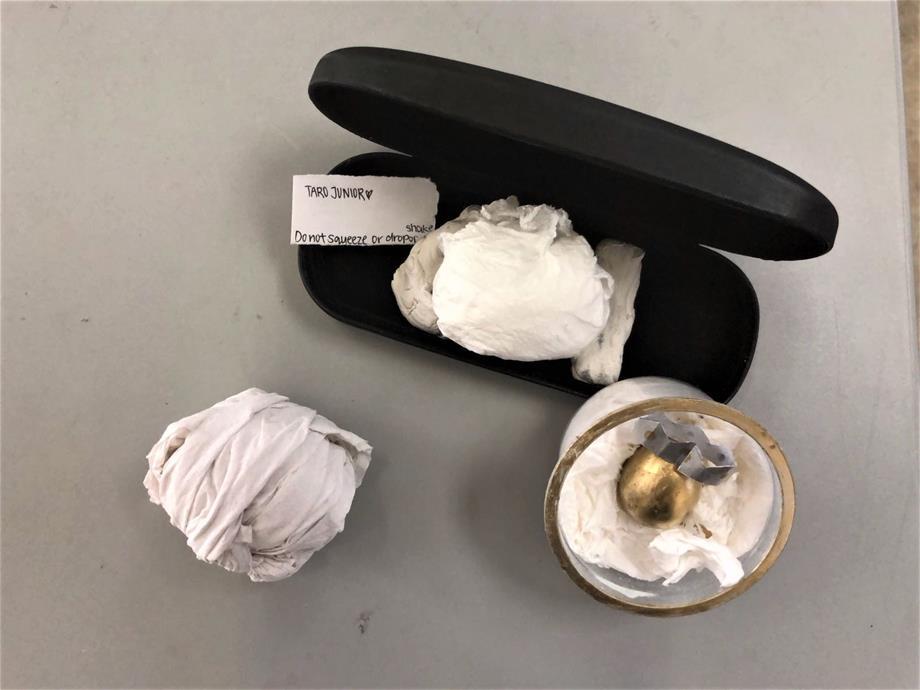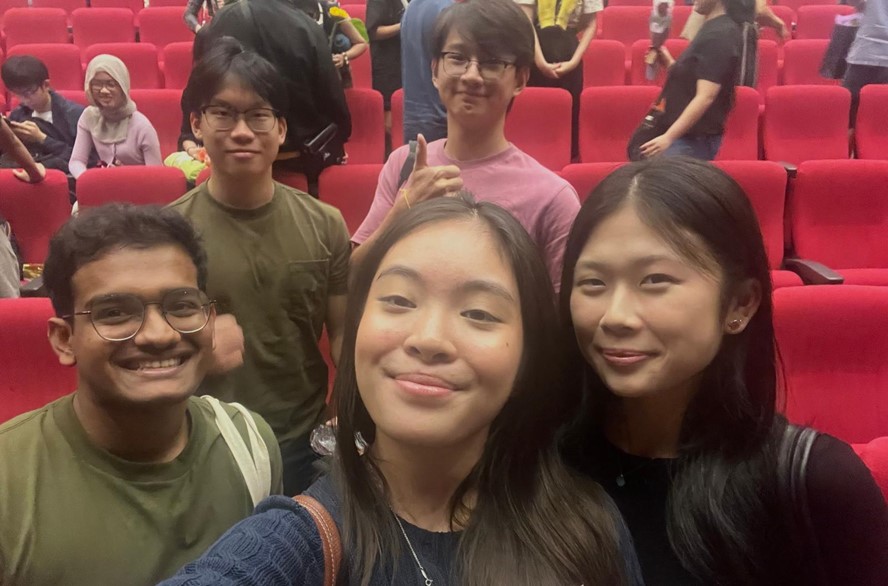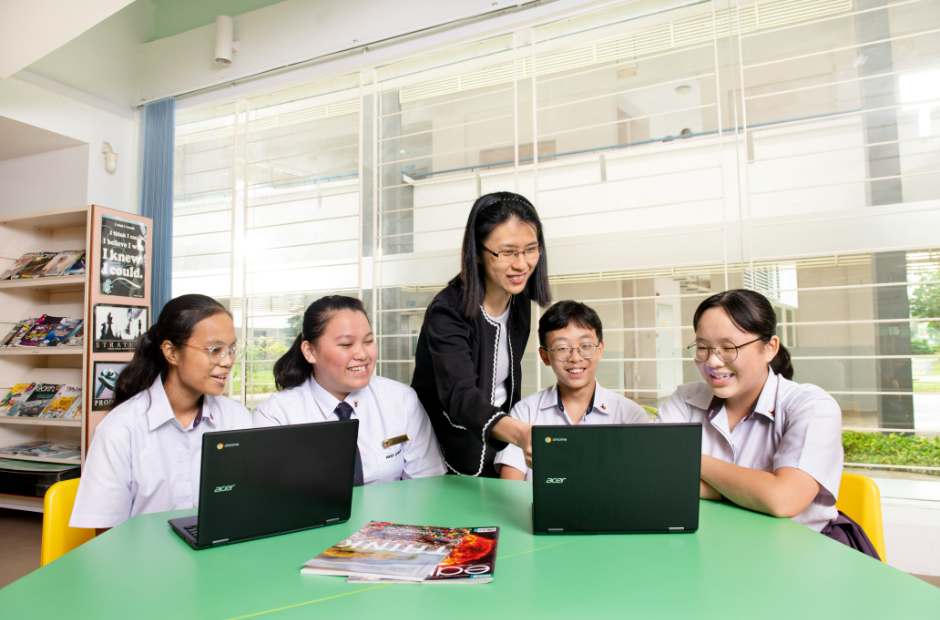Chinese language teacher, Mr Teo Chwee Hock, likes to talk about termites to inspire his pupils. “In the old days, ships were made of wood,” he says, retelling a story he had first read in his youth and now shares with his students.
“One day, a worker noticed one termite on a wooden plank. He ignored the problem and used the same plank to build a new ship. Twenty years later, during a wild storm, the boat broke into two, capsizing. All this was because of one termite, multiplying over the years and infecting the rest of the wood, destroying the entire ship bit by bit.”
Stories inspire questioning, deep thinking
Mr Teo uses such cautionary tales and stories from newspaper articles to help his students understand that values, whether positive or negative, will affect them not just in the present, but the future. Language learning to him is not about rote-learning Chinese words but a way of living – of embracing the ethos of one’s culture and society.
Currently teaching at National Junior College’s Junior High for the last 10 years, Mr Teo is a veteran teacher who started out at Queensway Secondary School before moving on to Raffles Girls’ School for the next 19 years. In 2018, he won MOE’s Distinguished Chinese Language Teacher Award.
“ I often question my students: why do you say this? Why do you do that?” Using the expression 习惯成自然 , which means turning a habit into a part of one’s nature, Mr Teo wants his students to use higher order thinking skills both inside and outside of the classroom. This compels them to reflect deeper into the reasons for their deeds and thoughts.
In class, when Mr Teo spots students copying homework from one another, he makes use of this as a teachable moment to share with them the saying, 做人道理 待人处世, which means the laws that govern one’s behaviour leads to how one gets treated.
“Is this something you should do for your friend?” He starts by asking them. “Will this help your friend? In the short term, yes, but how will your friend learn in the long term?”
By prodding them to think deep about what they are doing, he hopes his students will come to a realisation that whatever they do, even if considered harmless now, may become ingrained as part of their behaviour in future.
Authentic language learning starts from home
As a teacher for three decades, Mr Teo has witnessed many changes, not just in the profile of his students, but the way he teaches. “Years ago, before students had Internet access, I could talk about values from a textbook and the students would accept my explanation. But now, students have access to so much information that talking about a value alone is not enough for them to have a deep understanding of its concept, so I have to find real-life examples to engage them more meaningfully.”
These days, the learning of Chinese has to be more authentic and participative, Mr Teo says. “I always encourage my students to discuss anything in-depth—current affairs or environmental issues—with their family members using Mandarin to improve their oral competency; it’s not enough to have simple conversations about ‘Have you eaten?’
“If parents cannot converse well in Chinese, no problem. They can tell their kids that they want to learn Mandarin from them. In fact, I encourage parents to watch Chinese TV dramas together with their kids and discuss about that too.”
 The babysitting quail eggs’ project.
The babysitting quail eggs’ project.
Teaching students to focus
Mr Teo also teaches his students the value of 母爱父爱 (love for parents) through a quail egg babysitting project for his students. Dividing the class into groups, Mr Teo gives each group a quail egg. The task: to care for a quail egg for a couple of days.
“Taking care of someone is not an easy job. It takes dedication and focus, just as what parents do for their children. Asking my students to take care of a quail egg as a group means they need to take turns to care for this living thing.
“Some of the students start to take this task seriously. They will make a box for the egg to keep it safe, decorate the egg or cushion it with tissues. Occasionally, when they are distracted and careless, an accident will happen. The egg breaks and they feel upset, as they have started feeling attached to it. They then realise that parental duties are not easy and begin to appreciate their own parents more for taking care of them all this time.”
The project also teaches his students to be attentive and to focus. He notes that with the increased use of technology, his students are constantly trying to multi-task but unable to stay focused – a state of mind which cannot be healthy in the long run. As someone who does yoga and taichi daily, he knows only too well that wellness of the body is inextricably linked to the mind.
“In yoga and taichi, if you don’t concentrate the mind on what’s happening in the moment, you will lose the sequence of what goes next. This applies to life and studying, which is what I want my students to understand. Focus on doing one thing at a time, instead of being distracted and having their mind all over the place.”
Lessons for life
At the end of the day, language learning to Mr Teo is about building character and imparting positive values. “In all things we do,” he says, “it’s not enough to say that we want to 尝试 but 做. We shouldn’t just try our best, but do our best.”
*For more information about Mother Tongue Languages, visit the e-MTL Symposium 2020 at www.mtls.edu.sg






